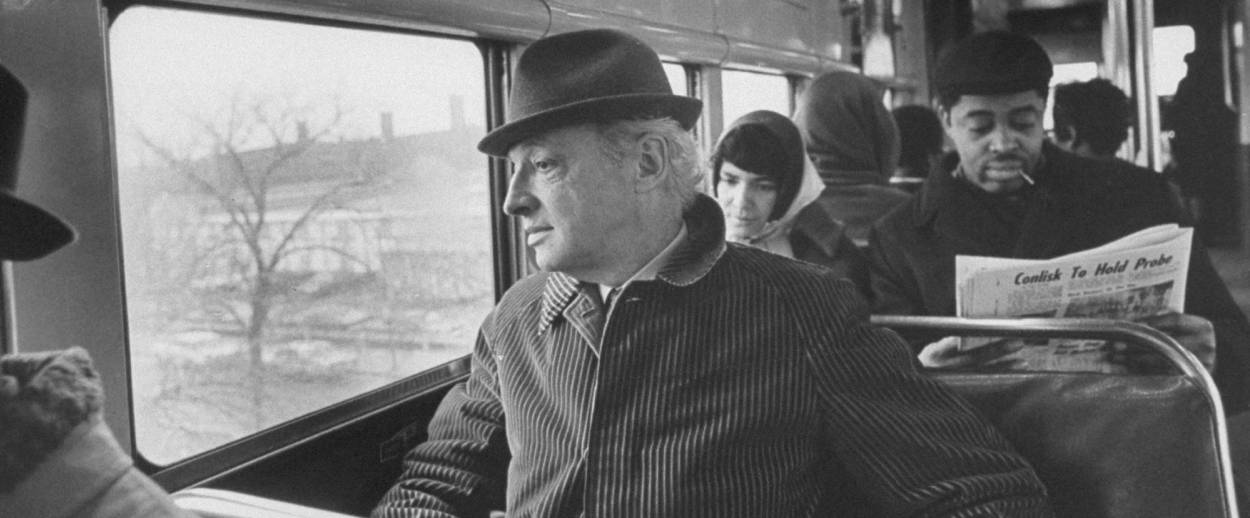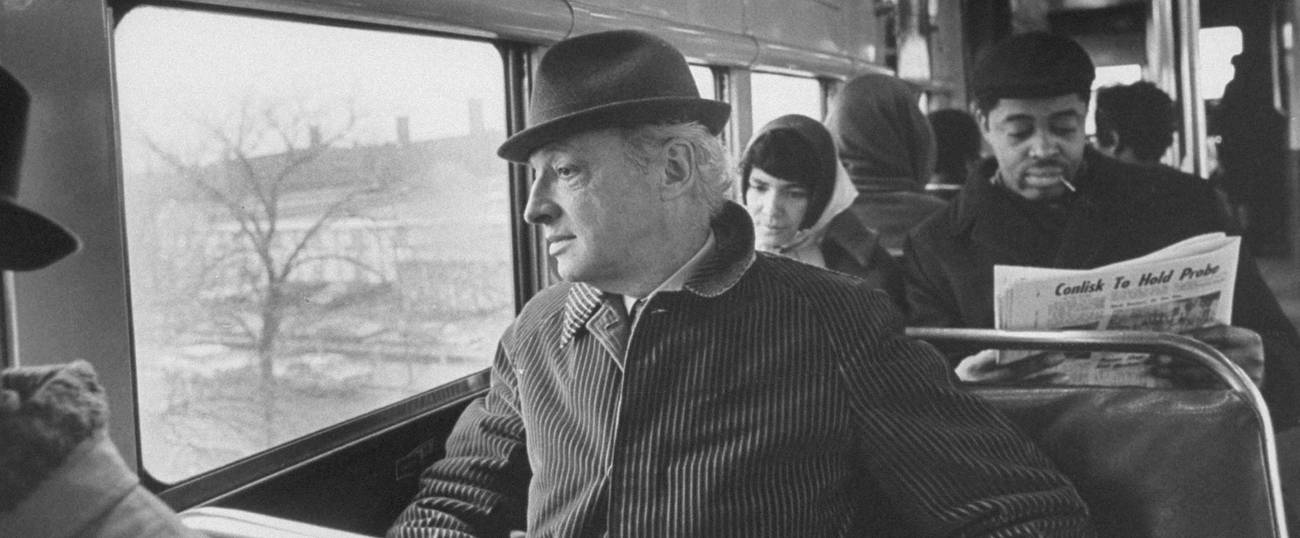Saul Bellow’s Nonfiction Is Pretty Bad
Bookworm: The master of fiction shares some rules for writing, then neglects to follow them himself




In Saul Bellow’s collection of nonfiction There Is Simply Too Much to Think About, you probably will not find many lyrical moments, or particularly trenchant pieces that will make you wonder how you went so long without ever reading them. But you will find some philosophizing with a hammer. There are parts of this collection that condemn many of the most misguided impulses in American writing and the absolute worst approach to the study of literature. These essays are more than just a series of rebukes against institutionalized ways of thinking; they are letters to young, budding readers and writers.
In one essay, “Deep Readers of the World, Beware!” Bellow offers a few comforting words to the 17-year-old version of myself sitting in a classroom, developing an ulcer after listening to his high-school English teacher inelegantly trying to shoehorn imaginary themes into great works of literature. Bellow uses the example of a young student theorizing that Achilles drags Hector’s body around Troy not because he is angry with the Trojans, but because The Iliad actually contains a series of circle motifs. And laughable as this may seem, I can assure you that there is no shortage of readers in the world who read literature with decoder rings. Deep reading, as Bellow calls it, is not the act of reading closely, but rather, the act of deliberately going after something that simply is not there.
In another essay he goes after the notion that writers must necessarily have real experience, that they need to be authentic people, whatever that means. Bellow writes in his essay “The University as Villain” that if one wants to sit in the streets and slum it, one should do it only because one wants to, but definitely shouldn’t do it for the sake of writing. And Bellow pokes fun at those artists who try to live decadent, bohemian lives and go out drinking as if doing so will improve their work and make them greater artists.
To purposefully go out and accumulate experience as a means of becoming a more authentic writer is probably the most disingenuous thing one can do—it is performative, and often makes for very one-dimensional fiction. It is because of this same misunderstanding of what a writer does that people sometimes try to put a spin on terrible situations by suggesting they can be turned into material for stories. Bellow intimates that the obsession with collecting bits of real-world experience for the benefit of one’s art belongs almost exclusively to American writers, and it is precisely because of their relentless dedication to writing only what they know that American writers are more limited.
Bellow wrote his essay against the fetishization of the writer’s experience in 1951. Today, there are perhaps an even greater number of people who believe in a hierarchy where only those who have cavorted enough, suffered enough, or lost enough can write well, or should be allowed to write at all.
Bellow also suggests that believing in the primacy of experience inhibits a writer’s ability to look upward, to write with more than just the demotic language of the people, but to speak enchanted prose, that heartbreaking, transporting prose we call high art. Bellow suggests that the writer’s job is not to accurately describe experience on paper, but instead, by what he calls an unknown process, to find a way of transposing into words the impulses and desires that take place in the human heart. Experience writers are listers of facts, nothing more. And listicles are generally not great literature.
This is a place where I wish Bellow had taken some of his own advice. In so many ways his essays are a contradiction of these very terms and principles, even if he does indeed give us an essay that we wish we could have nailed to the door of our high-school English department. His nonfiction, at times, does feel like a collection of facts. Bellow is an extensive lister; he gives nine examples where three will do, he writes the same sentence three different ways before moving on to his next thought, and for every flaw of contemporary society he correctly identifies, there are four that he seems to have dreamed up simply for the sake of having something to say. In his essay on Paris, Bellow goes out of his way to describe the city as grotesque and artless, and then goes on to wonder how it could possibly be that he has fallen in love with boring, gross, icky, lifeless, stupid Paris, as if Paris is actually any of those things. In short, these are not the kind of pieces Bellow himself would urge us to write.
And as for that prose, that nobler prose, Bellow’s criticism does not read like a dreamy incantation of wisdom and poetry. It is at once more colloquial, and yet somehow much harder to get through. You can read 500 pages of Bellow’s nonfiction and hardly, if ever, get a sense of the real Bellow. There is no glimpse into his unknown process. This is not simply because he does not write many personal essays, but because even in the act of purporting to expose himself, he still is unable to do so.
What makes Bellow the novelist so different from Bellow the essayist is the ease with which the former is willing to undress himself. Bellow the novelist is a writer who attempts to transpose the intermittent firings of the heart. His essays do very little of this transposing; inexplicably, they are the work of an experience-tethered writer. His criticism of deep readers has never been more accurate than when turned inward on his own nonfiction. He sees a story in his own experience, when what he really offers, for the most part, is a mixed collection of assertions and facts, in which the author desperately hopes we’ll see more than what’s on the page.
***
Read Alexander Aciman’s Bookworm column in Tablet magazine on Mondays.
Alexander Aciman is a writer living in New York. His work has appeared in, among other publications, The New York Times, Vox, The Wall Street Journal, and The New Republic.